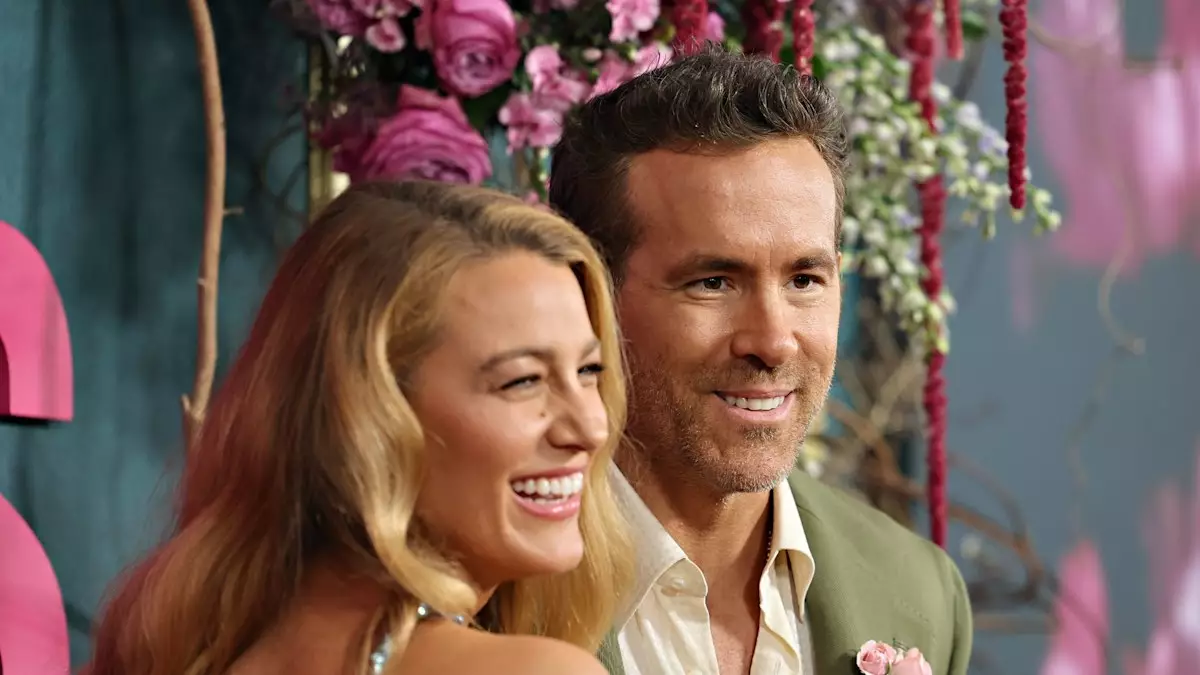The entertainment industry is no stranger to controversy, but the recent legal drama involving Blake Lively and her It Ends With Us co-star, Justin Baldoni, has taken the spotlight, stirring a tempest of reactions not just from fans but also from fellow actors and the public. As allegations of sexual misconduct swirl around Baldoni, Lively has named her husband, Ryan Reynolds, as a participant in discussions surrounding these claims. This unfolding saga raises significant questions regarding gender dynamics, power structures, and how public figures navigate these tumultuous situations.
The lawsuit filed by Lively emphasizes a perceived effort by Baldoni to tarnish her reputation, which reflects not just personal grievances but systemic issues that plague Hollywood. Allegations of sexual misconduct are not merely private matters; they resonate throughout the industry and can have substantial repercussions on careers and public perception. By including Reynolds in her lawsuit narrative, Lively indicates that the implications of Baldoni’s actions transcend her own experience, implicating those closely affiliated with the productions involved.
The claims brought forth by Lively illustrate a growing awareness of the serious consequences of inappropriate behavior in the workplace. The movement towards accountability continues to evolve, with high-profile cases challenging the status quo. The involvement of Lively’s husband in these discussions is another layer, showcasing the complexities of familial loyalty and public personas when a scandal unfolds.
In the face of personal turmoil, Ryan Reynolds has opted to redirect his energies towards philanthropy. By collaborating with the charity SickKids, which provides vital support for children’s health initiatives, Reynolds is reaffirming his commitment to social causes, even amid significant challenges at home. His decision to release a video while dressed in his Deadpool costume alongside one of his daughters signals a return to normalcy and the importance of familial bonds during turbulent times.
Reynolds’ social media presence reveals his desperate attempt to maintain a balance between personal grace and public transparency. He invokes a spirit of support not only for his wife but also for children in need. “This organization is a sanctuary for so many kids and their parents traversing the unimaginable,” he notes, hinting at both his family’s current struggles and the overarching issues faced by children dealing with health crises. In this instance, charity takes precedence over the chaos, showcasing Reynolds’ ability to pivot from personal difficulty to broader humanitarian efforts.
With Lively’s lawsuit bringing attention to these allegations, several figures from her professional circle have rushed to support her. Notable co-stars from various projects have come forward, emphasizing the importance of unity in such troubling times. This sense of solidarity underlines the network of relationships that exists within the industry, illustrating that while personal feuds can occur, professional friendships often prevail in encouraging a dialogue about misconduct.
Colleen Hoover, the author of the novel that inspired the film, alongside other actors like Amber Heard and members of Lively’s family, have also expressed their backing for her. Such endorsements serve both to uplift Lively during a challenging period and to broaden the conversation around the importance of taking allegations seriously. The collective voice against misconduct underscores the industry’s growing recognition of the necessity for a safe environment for artists and crew alike.
This situation encapsulates the duality of celebrity culture—where public personas can be both inflamed and extinguished by singular events. Lively’s predicament reflects broader societal challenges regarding the treatment of women in the entertainment sector, the expectations placed on them, and the relatively fragile stability of their careers. This situation serves as a reminder that behind the glitzy facade of Hollywood lies a complex interplay of power, vulnerability, and the search for accountability.
The story unfolding around Lively, Baldoni, and Reynolds highlights the inherent challenges faced by public figures in navigating both their personal lives and professional responsibilities. As more individuals step forward to support Lively, it becomes evident that celebrity issues often mirror broader societal debates—speaking to the need for change, understanding, and ultimately, compassion within the industry. As this narrative continues to evolve, it begs the question: how can Hollywood foster a safer, more equitable environment for all its artists?

